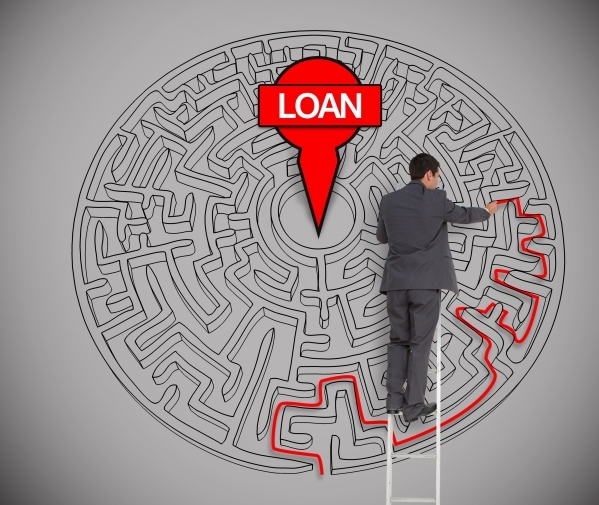Seven questions to ask yourself before taking out a mortgage
You shouldn't rely on luck as you're financing your new home, but knowing the answers to these seven questions can't hurt.
What if I have bad credit?
FICO credit scores vary from 300 to 850. Lenders judge an applicant's ability to pay, in part, on his or her credit score. Anything above 700 is considered a good score. Fair is typically 650 to 699, and anything below 600 is considered bad credit in the lending industry.
"FICO scores are the credit scores used by 90 percent of top lenders to determine your credit risk," according to myFICO.com.
So it would go to reason that you need a score of 650 or more, right? That's not the full picture. Applicants can typically qualify without great credit, but the loan terms are likely to be less favorable.
"What is the minimum FICO score? Depending on the program it can be 620 for conventional and as low as 580 to 600 for a Federal Housing Administration (loan) depending on the contents of the credit." said Kari Phillips, senior loan officer with Southern Fidelity Mortgage.
FHA is a great option for first-time homebuyers without great credit because it is easy to qualify and requires a lower down payment, but requires private mortgage insurance.
What about a down payment?
Lenders require down payments to invest a homebuyer in the property. The more money the homeowner invests in a property the less risk the bank takes because it provides less upfront money and because, in theory, the homeowner is less likely to walk away from that down payment money.
Also, the loan-to-value ratio is better because the home is worth more than the loan amount. Think of it this way: If the bank has to foreclose the home for nonpayment, the house will be worth more than the remainder of the loan.
A conventional home loan (the industry standard) requires a 20 percent down payment, so that's $40,000 on a $200,000 home purchase. But there are other options. Check into an FHA loan, which typically requires as little as 3 percent down ($6,000 for that same house) but carries with it stricter stipulations for the appraisal and inspection processes.
Still too steep? Some banks offer loans that require no down payment based on your credit rating and other qualifying factors. Contact your bank for more information.
Curious what different down payments, purchase price and interests rates will cost you? Try a mortgage calculator to figure out the details.
What's the difference between interest and APR?
In simple terms, "interest rate is the actual note rate of your loan. The APR considers all costs associated over the life of the loan," Phillips said.
The Consumer Financial Protection Bureau explains it as the interest rate is the cost each year for just the loan, but the APR includes points, fees and charges as well as the cost of the loan.
So, for the lowest monthly payment or if the plan is to only own the home for a few years, go with the lowest interest rate. For the lowest overall cost of the loan or if the plan is to stay there for 30 years, go with the lowest APR. But it's best to use both rates when comparing loans.
What are PITI and PMI?
Home loans are a regular alphabet soup. Know the acronyms and don't be afraid to stop someone and ask them to explain. Two common ones you can expect: PITI and PMI.
PITI is short for principal, interest, taxes and insurance. This is what you can expect to pay on each month.
PMI is private mortgage insurance, which is not always required. PMI is common when a down payment is under the 20 percent threshold, which makes the bank loan slightly more risky. The insurance is to protect the bank and the loan, not the borrower.
Should I get an ARM?
An adjustable-rate mortgage has the benefit of being really enticing in the short term. But the great rates available right now aren't guaranteed over the long term.
Depending on the structure of the loan, Phillips said, an ARM's rate can change every three to seven years and end up costing an arm and a leg.
"An ARM is only fixed for short period of time, and a fixed rate is fixed for the full term of the loan. I would only suggest an ARM in a very stable interest rate environment and if you were not planning on staying in the home very long or refinancing after a short term." Phillips said.
Points: What are they and should I buy them?
Points are a method of reducing the interest rate on a loan and the cost of points and amount of benefit vary on the lender and the loan.
"If you pay points that means you are paying to get a lower interest rate and it depends on the market at the time and how much money that is going to save you," Phillips said.
In the simplest of terms, a lender could offer a point for $2,000 to reduce the interest rate by 0.5 percent.
The trick is to do a cost-benefit analysis. Try a mortgage point calculator to see if it's worth the initial investment.
"It's usually not worth it," Phillips advised.
What are LE and CD?
What makes an alphabet soup worse? Changing acronyms. What were the commonly recognized GFE and HUD are now the LE and CD. Head swimming yet?
No worries. It boils down to this: When the loan process begins, the lender supplies a loan estimate, which outlines expected costs for the loan. When it's all done and you're ready to sign on that dotted line, the closing disclosure shows what those costs actually are. When comparing this documents — which you should do — the costs should be very similar.
"Be prepared for a long-term commitment," is Phillips' best advice. "Home ownership is a serious commitment and comes with a lot of responsibility so be sure you are ready for that."
























